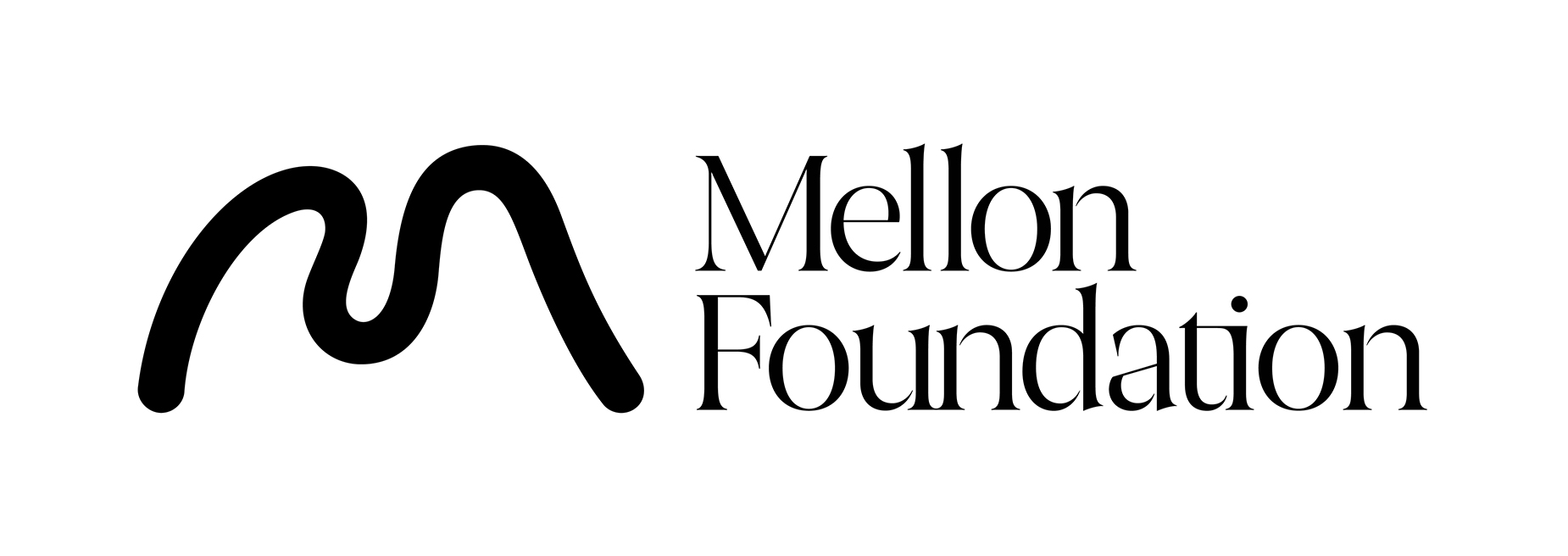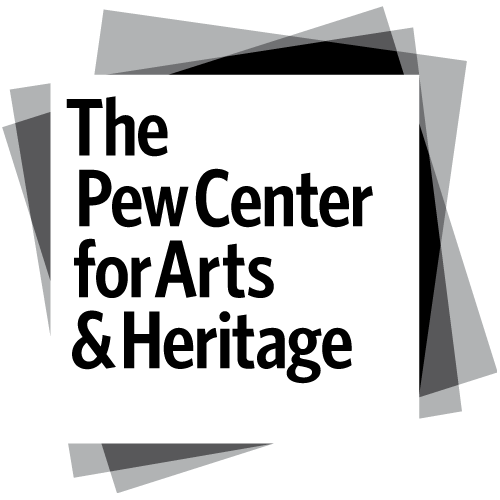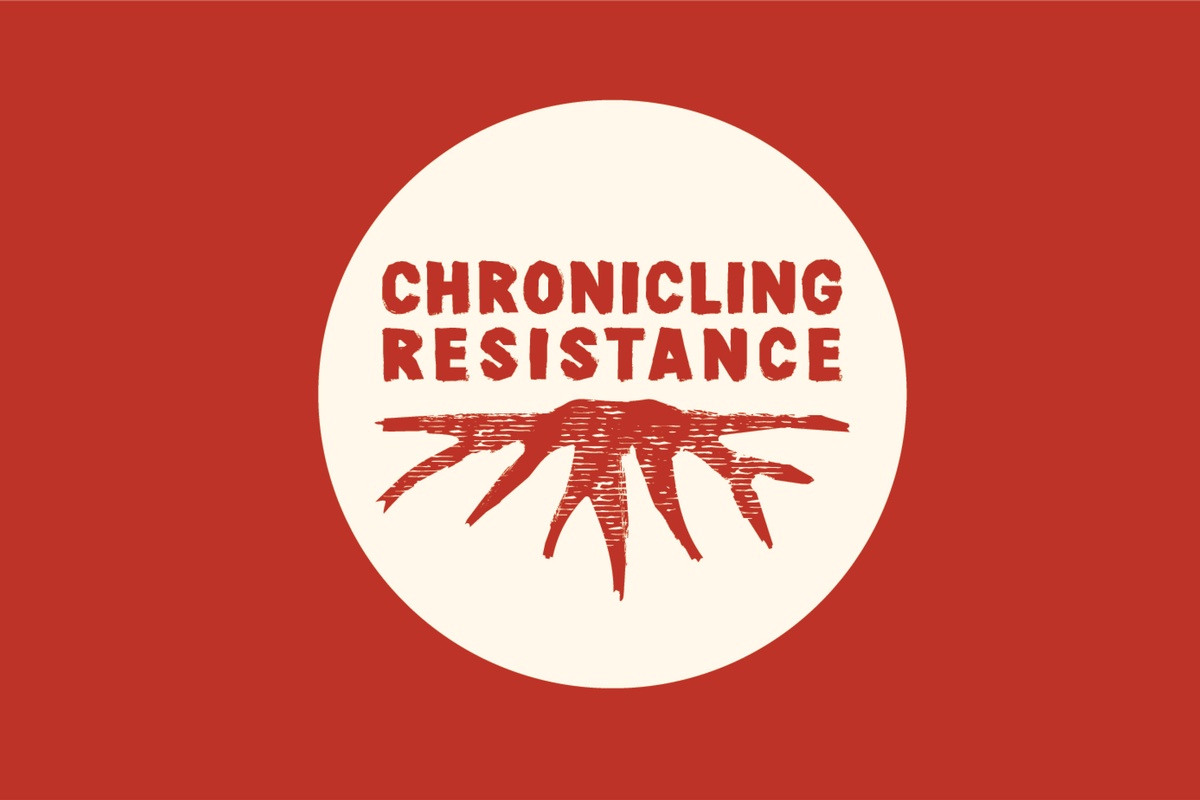Opening September 22 and running through January 31, 2023 (extended from original closing date of December 31, 2022) at Parkway Central Library and South Philadelphia Library, Chronicling Resistance: The Exhibition and its companion programs reveal what eight local activists, cultural organizers, and artists unearthed when they dug deeply into the same Philadelphia archives that have historically excluded their voices and perspectives. Through archival items, rare books, oral histories, and original artwork, Chronicling Resistance counters the erasure of Black, Brown, and LGBTQ+ people from the historical record, breaks silences, and uncovers new ways of understanding and enacting resistance.
As they work towards the exhibition’s opening later this month, Curator Yolanda Wisher and Project Director Mariam I. Williams share their thoughts below.
By Yolanda Wisher, Notes from a Curator
Chronicling Resistance: The Exhibition was created by a group of Activist-Curator Fellows amidst local uprisings and gun violence, national protests and political division, and a global pandemic. Many of the folks who created this exhibition—fellows, staff, and partners—did so alongside a great deal of personal loss, anxiety, rage, despair, and uncertainty. We started with 11 fellows, and through the ups and downs of the project and of life, we ended with eight. This exhibition was also created in the midst of many structural changes and upheavals at the Free Library of Philadelphia. The work of chronicling acts, communities, and movements of resistance is often done under duress and while resisting, undertaken by survivors who are forced to do the difficult work of looking back while moving forward.
The eight fellows set out to illuminate the stories of Philadelphians who resisted oppression, assimilation, hatred, inferiority complexes, and the silences of history. Their research was inspired by a search for kinfolk of blood, culture, intellect, and soul in the past. They were also in search of ideas and solutions that could inform the cultural work, community organizing, and artistic work they are already deeply engaged in. They led community programs to share their learnings, and they explored the idea of what an exhibition born out of resistance stories could be.
This was not easy work physically, mentally, or spiritually. The ways that traditional archives can be built, guarded, and anointed requires a steeliness of purpose and unrelenting sense of hope to locate and uplift the marginalized stories of marginalized folks within them. The work of activating the research requires feats of the imagination to feel in the dark for a thread of the past that will be a lifeline for today. Some of these objects and artifacts were never meant to be re-examined or re-interpreted in the way the fellows have. They were not meant for our 21st century critical eyes, prizmatized by Blackness, Asianness, and queerness. For the fellows, these objects and artifacts are ripe with the loss of real mothers, sisters, brothers, and fathers, and real historical wounds that have never healed. The work behind Chronicling Resistance: The Exhibition sought to recover an intimacy with freedom seekers of the past that confronts and defies the barriers of trauma, time, and institution.
We have all learned some deep lessons about the power of libraries, solidarity, and looking back these past two years of creating Chronicling Resistance. For one, a library can be a home and hub for the seeds of living activism and art, not just a mausoleum for the overanalyzed records and ideas of dead white men. Secondly, Black and Brown communities have competed through different points of Philly's history for acknowledgement, resources, and space. In the work of looking back through archives of resistance, we can see missed opportunities for solidarity and mutual aid that don’t have to be missed again. Through the fellows’ work on this exhibition, we can sense the possible futures of community building between us.
Finally, looking for and encountering acts of resistance in the past should be an ongoing, regular practice for us all. It can make us feel like we can exist whole, with dignity and purpose, with roots that give us an anchor in the tumultuous sea of the present. We look back and see what it looks like to not give up or to give in to despair. It can show us that living with eyes wide open is possible and that resistance takes many forms—hoofin’, writing poems, cooking stew, protesting in the streets, teaching in the schools, traveling the world, or escaping oppressive regimes. We look back to find the strength we need to define and defend the freedom that is ours.
Yolanda Wisher is an American poet, educator, and spoken word artist who focuses on the experience of being African-American. She is a graduate of Temple University and was selected as the third Poet Laureate of Philadelphia in 2016. She is serving as curator of the Chronicling Resistance project.
By Mariam I. Williams, Co-Principal Investigator and Project Director
"In South Africa, a common greeting is sawa bona, which translates to, 'I see you,' or, 'I acknowledge your existence.' The response to this greeting is sikhona, which means, 'I am here--when you see me, you bring me into existence.' … [I]n every space I enter, I am waiting for someone to exchange this pleasantry with, not just in word but in intention. And usually, I am met with silence." —Jessica J. Williams
I found this quote in an essay in which Jessica J. Williams is discussing what it’s like to be Black in academia, a traditionally and abundantly white space. It resonated with me in regards to Chronicling Resistance because there are few spaces whiter than the archive.
I am a Black woman. The cohort of Activist-Curator Fellows and Consulting Curator for Chronicling Resistance are Black, Brown, Indigenous, uterus-having, same-sex loving, gender-queer, immigrants, impoverished, non-English speaking, and people otherwise pushed to the margins. When we enter the archive, we are looking for ourselves, while the archive—the documents found in rows and stacks of clamshell boxes and acid-free folders, locked away in chilled rooms of centuries-old institutions, the raw data scholars use to write history—does not see us. It meets us with silence. Or it too often speaks to us as objects, side players, and background noise, rather than to our humanity and our agency.
This is neither accidental nor coincidental. Traditional archives and the people who built them have not acknowledged our existence. Though efforts have been underway since the 1960s to expand or diversify collections, and though librarians who work in archives and special collections know the lapses, traditional archives still reflect the society in which we live, one that operates as a hierarchy in which people who are white, male, cis-gender, heterosexual, and wealthy or famous have histories worth remembering and papers or artifacts worth preserving. In this way, the archive both affirms and invalidates what happened, who exists, who has power, and whose stories are or will be worth remembering for future generations.
This project does not make up for centuries of silences. It can’t and doesn’t attempt to. Chronicling Resistance does, however, attempt to amplify the voices of a small cohort of local activists, cultural organizers, and artists by sharing with Philadelphia what they found in institutional archives and in their own communities.
In October 2020, the Chronicling Resistance Activist-Curator Fellows began looking within the Free Library and Philadelphia Area Consortium of Special Collections Libraries (PACSCL) institutions for stories of resistance in Philadelphia that reflected their communities and their own areas of activism. Defining “resistance” on their own terms, they have challenged the systemic erasure of Black, Brown, and LGBTQ+ people from the historical record. Though the work has not been easy, the Fellows have shown that there is power in contending with the traditional, in bringing yourself off the sidelines and to the center, in making your ancestors’ names known, in declaring, “I am here.” There is also joy in uncovering what has been hidden, in bringing ourselves out of the silences and into bold existence.
As a fellowship program, institutional-community collaboration, and exhibition, Chronicling Resistance has been supported by generous grants from the Mellon Foundation and The Pew Center for Arts & Heritage. Chronicling Resistance also would not have been possible without archivists and librarians within the Philadelphia Area Consortium of Special Collections Libraries (PACSCL).


Have a question for Free Library staff? Please submit it to our Ask a Librarian page and receive a response within two business days.

